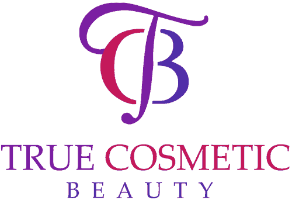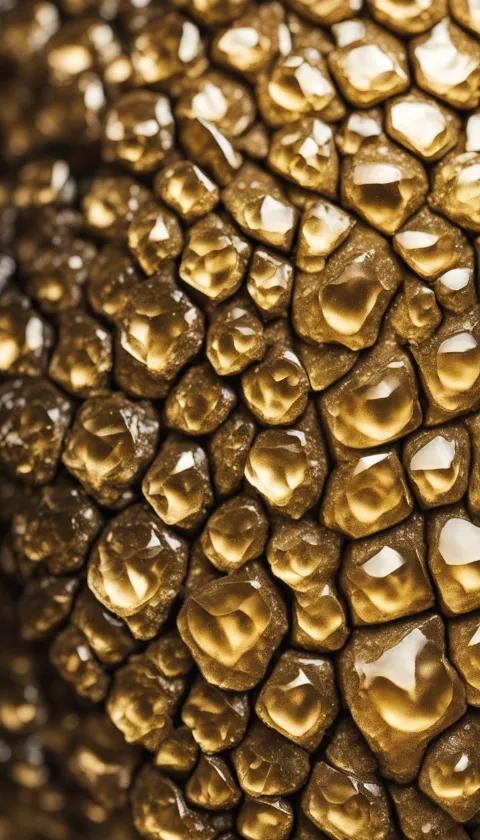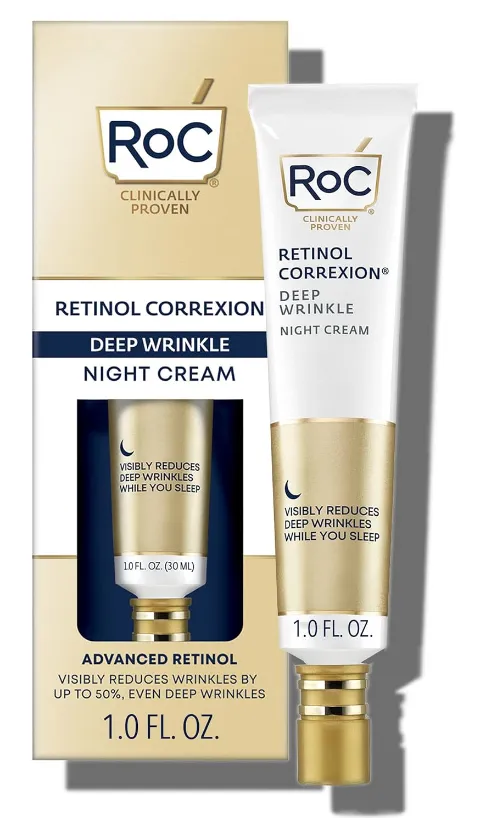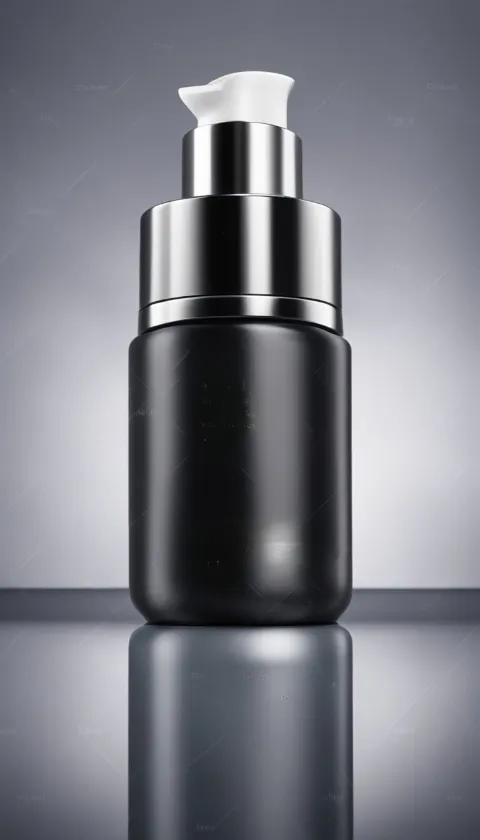How to Choose the Right Anti-Aging Skincare Products for Your Skin Type: Expert Tips
This guide is for you if you desire healthy, radiant skin that defies your age. Consider me your confidante, demystifying the world of anti-aging products so you can reveal your most confident, youthful self.
With the right knowledge and consistent care, you can outshine women half your age! I’m honored to hold your hand through this journey toward timeless beauty.
Together we’ll navigate choosing products tailored to your unique skin type and concerns. You’ll understand which ingredients to embrace and which to avoid. Effective routines will become second nature.
Leave behind fruitless trial-and-error and expensive mistakes. Let this be your guidebook to ageless magnificence! Your most vibrant, stunning complexion awaits. Now let’s begin!
Deciphering Your Unique Skin Type
My darling, determining your skin type is a must before choosing products. Let’s explore how to identify if you have dry, oily, combination, sensitive, normal or mature skin.
Dry Skin
Dry, flaky, tight skin desperately needs moisturizing ingredients like plant oils and shea butter. Fine lines and rough patches reveal dehydration.
Oily Skin
Oily zones appear perpetually shiny with enlarged pores. Blemishes often occur from clogged pores. Seek oil-free, mattifying products.
Combination Skin
With both dry and oily areas, usually the T-zone. Target ingredients to each zone’s needs.
Sensitive Skin
Easily irritated and inflamed. Requires gentle options free of harsh chemicals. Do patch tests before trying new products.
Normal Skin
Not too oily or too dry. Look for lightweight moisturizers that provide balance.
Mature Skin
Concerns like wrinkles, dullness, and age spots appear. Collagen-stimulating retinol and antioxidants are key.
To determine your skin type, try the “bare-faced test”: Cleanse your face and don’t apply any products for an hour. Afterward, observe how your skin feels and appears. This simple test will provide you with insight into your skin type and help guide your product choices.
Now that you understand your skin type, you can select products tailored to your individual needs. By doing so, you’ll be on your way to a more effective and personalized skincare routine.
Identifying Your Skin Concerns
When it comes to choosing the right anti-aging skincare products, it’s essential to identify your specific skin concerns. This will help you select the most suitable products to target those concerns effectively.
In this section, we’ll discuss common skin concerns, such as fine lines and wrinkles, loss of firmness, sun damage, uneven skin tone and texture, and dark spots and hyperpigmentation.
Smoothing Away Fine Lines and Wrinkles
Ah, those inevitable signs of maturity – fine lines and wrinkles. As we age, collagen and elastin decline, allowing creases to form. Sun worshipping, smoking and squinting quicken their arrival.
But do not fret, my darling! Retinol, alpha hydroxy acids (AHAs) and peptides are our allies for diminishing creases. Retinol boosts collagen production and cell turnover, unveiling fresh skin. AHAs like glycolic acid gently exfoliate to reveal smoothness and clarity. Peptides send collagen-stimulating signals to fortify skin’s support structure.
With these ingenious ingredients, you can soften the look of fine lines and wrinkles. A more youthful, crease-free complexion is within your grasp! But patience and diligence are vital – allow sufficient time to reap their wrinkle-vanquishing rewards.
Restoring Contour and Firmness
Nothing reveals one’s age quite like sagging skin and loss of facial contour, my dear. Diminishing collagen and elastin levels deprive skin of its supple structure. Gravity has its way with tissue no longer taut and resilient.
But we can win this battle against sagging! Retinol, antioxidants like vitamin C, and peptides are our ammunition for fortifying skin and enhancing tone. Retinol accelerates cell turnover for renewed firmness while antioxidants neutralize free radicals that degrade collagen. Lastly, peptides signal to our cells to ramp up collagen production.
With diligent, daily use of these ingredients, skin regains its supple strength to defy sagging. So lift your chin, darling! A taut, contoured complexion is within reach with the right products. We’ll fight gravity yet!
Defending Against Sun’s Damage
The sun’s damaging ultraviolet rays are a formidable foe when it comes to aging skin gracefully. Prolonged sun exposure leaves its mark through fine lines, wrinkles, discoloration and sunspots.
But we will not surrender without a fight! Broad spectrum sunscreen with SPF 30 or higher is our first line of defense. Next we’ll reinforce skin’s protection with antioxidants like vitamins C and E. Vitamin C brightens existing sunspots while neutralizing free radicals. Vitamin E also strengthens skin’s antioxidant network.
With diligent protection and antioxidant support, your skin will withstand the sun’s assault. Do not fear the light, my darling! With wisdom and care, we can enjoy the sun while combating its aging effects. Onwards to radiance!
Restoring Evenness and Glow
Like most women, you likely desire flawlessly smooth, even-toned skin. But various factors like sun exposure, acne scarring and pigmentation changes cause blotchiness and uneven texture.
Not to worry – radiant redemption is possible! Our saviors are alpha hydroxy acids (AHAs) like glycolic and lactic acids. These exfoliate lackluster cells to reveal fresh, glowing skin.
Beta hydroxy acids (BHAs) like salicylic acid also dissolve debris in pores, improving tone and texture. Vitamin C brightens while niacinamide fades discoloration.
With diligent exfoliation and targeted ingredients, your skin transforms – from dull and uneven to luminous and smooth. I promise this radiance awaits you, my darling!
Banishing Dark Spots and Discoloration
Don’t let dark spots and unwanted pigmentation steal your glow! Overproduction of melanin leads to these frustrating concerns. Causes include sun exposure, hormones, and inflammation.
Effective brightening solutions exist, my darling! Hydroquinone inhibits melanin production, while kojic acid prevents its formation. Niacinamide also fades discoloration by blocking melanin transfer to skin’s surface.
With consistent use of targeted brighteners, your true luminous complexion will be unveiled. But gently nurture your skin – start slowly, do patch tests before trying new products, and see a dermatologist if you need guidance.
With wisdom and care, you can banish dark spots for good! I can’t wait to see your inner radiance shine through.
Powerful Anti-Aging Skincare Superstars
Time to discover the celebrities of the skincare world for fighting aging concerns! Let me introduce you to the A-list crowd:
Retinol, Skincare Rockstar
In the world of anti-aging, retinol reigns supreme! This vitamin A derivative smooths wrinkles and brightens dark spots like no other. It speeds up cell turnover to reveal fresh, new skin. Collagen production also increases for improved firmness and elasticity.
Retinol does take some adjusting to, my dear. Start with lower concentrations and gradually increase strength over time. This allows your skin to build tolerance and avoid irritation. But the rewards are worth it – consistent use transforms texture and tone for remarkable results!
When shopping for retinol, seek stable, encapsulated formulas that maintain potency. Pair retinol with gentle cleansers and moisturizers to avoid dryness. With smart use, retinol can make you glow from within!
The Power of Vitamin C
Like a true superhero, vitamin C swoops in to save our skin! This potent antioxidant neutralizes free radicals to prevent collagen breakdown and cell damage. It also boosts collagen production for firmer skin.
Vitamin C brightens existing dark spots and discoloration, while shielding skin from future UV damage. Look for proven stable forms like L-ascorbic acid or magnesium ascorbyl phosphate.
Use vitamin C in the morning under sunscreen to enhance UV protection. Combined with retinol, vitamin C offers a one-two punch against wrinkles and dullness! With consistent use, your skin glows brighter, feels firmer, and stays resilient against aging.
Here is a rewrite of the H3 section on hyaluronic acid in Victoria’s style:
Hydration Hero Hyaluronic Acid
Meet the superhero of hydration – hyaluronic acid! This humectant binds moisture to nourish thirsty skin. Fine lines and wrinkles appear plumper as hydration is restored.
Hyaluronic acid rescues dehydrated skin with its unmatched moisture retention abilities. Bonus – it’s suitable for all skin types and won’t clog pores.
Look for hyaluronic acid serums and moisturizers to quench parched skin. Hydrated, supple skin not only looks more youthful, but better absorbs other anti-aging ingredients.
Reveal your glow with hyaluronic acid! This hydration superhero keeps skin plump, smooth and protected from aging.
Niacinamide – A Multi-Tasking MVP
Want one ingredient that tackles all major aging concerns? Meet niacinamide, my skincare MVP!
This phenomenal form of vitamin B3 improves elasticity and strengthens skin’s moisture barrier against environmental assaults. Redness and inflammation subside with continued use.
Lines and wrinkles seem to soften as niacinamide boosts collagen production. It also fades dark spots and hyperpigmentation for a flawless, even tone.
For an ingredient that multitasks like no other, look no further than niacinamide! With diligent use, niacinamide helps restore resilience, vibrancy and clarity.
The Power of Antioxidants
Like a valiant army, antioxidants band together to shield your skin from attackers. These environmental aggressors like pollution and UV rays generate harmful free radicals.
But antioxidants like vitamins C and E, ferulic acid, and green tea extract neutralize these radicals before they degrade collagen. This protection means fewer wrinkles, less dullness, and smoother skin texture over time.
Look for products featuring a cocktail of antioxidants like resveratrol, pomegranate and acai extracts. With a diverse mix, your skin enjoys enhanced, broad-spectrum defense against aging. Shield your complexion daily with antioxidants for lasting beauty!
Nurturing Delicate Sensitive Skin
My darling, for sensitive complexions, take the utmost care when trying new products. Harsh ingredients and heavy fragrances can ignite irritation or redness.
Instead, pamper your delicate skin with soothing formulas featuring aloe, chamomile, oatmeal or green tea. Avoid alcohol, sulfates, parabens and other irritants. Do patch tests before incorporating something new into your regimen.
Also, remember that everyone’s sensitivity threshold differs. Have patience in finding what nurtures your skin versus triggering reactions. I encourage consulting a dermatologist if you need guidance on the best options for your unique skin needs.
With a gentle touch and careful product selection, your sensitive skin will glow with good health. TLC and caution are key, my darling!
Ingredients to Avoid in Anti-Aging Skincare Products
When choosing anti-aging skincare products, you must be cautious about the ingredients they contain. Some substances can harm or irritate your skin, negating the desired effects of such products.
Here are some common harmful ingredients you should avoid:
Fragrances: Though they can make your skincare products smell nice, fragrances can potentially cause skin irritation or even an allergic reaction. Choose fragrance-free skincare products whenever possible to prevent irritation, especially if you have sensitive skin.
Sulfates: Commonly found in cleansers and shampoos, sulfates like sodium lauryl sulfate can cause irritation and allergy. It is crucial to avoid sulfates in your anti-aging products. Opt for gentler, sulfate-free alternatives instead.
Parabens: These preservatives can cause skin irritation and have been linked to some health concerns, although more research is needed to understand their full effects. When possible, choose paraben-free anti-aging skincare products to minimize potential risks.
Phthalates: These are chemicals used to increase flexibility in plastics and are sometimes found in skincare products. Phthalates have been associated with health risks, so it’s best to avoid products containing them.
Here is the section formatted as a blog post:
Evaluating Your Anti-Aging Skincare Routine
When incorporating new anti-aging products into your skincare routine, it’s important to assess how well they are working for your skin. Follow these tips to determine which products to keep and which to replace.
Track Changes Over Time
Be patient and consistent when evaluating new anti-aging products. It can take 6-8 weeks to see noticeable improvements as your skin goes through its renewal process.
Take before and after photos to closely monitor changes in fine lines, wrinkles, dark spots, texture, and firmness. Compare the photos over time to gauge results.
Look for Targeted Improvements
Pay attention to how your specific skin concerns respond to each product. Make notes of any positive changes you observe, like fewer wrinkles, brighter tone, and smoother texture.
Keep expectations realistic – no product will completely reverse the natural aging process. Focus on subtle but meaningful improvements.
Research Product Reviews
See what other people with similar skin types and concerns say about the product. Look for consistent feedback on its effectiveness and potential downsides.
Remember your experience may differ from reviews. View them as helpful perspectives, not guarantees, when evaluating products.
Adjust Accordingly
If you don’t see desired results after consistent use, try switching up your routine. You may need a stronger concentration or a complementary product to target your concerns.
Stop using any products that cause irritation, redness or discomfort. Your skin’s reaction supersedes positive reviews.
With attentive tracking and realistic expectations, you’ll determine which hero products deserve a permanent place in your anti-aging skincare lineup! Let me know if you need any clarification or have additional questions.
Choosing Products for Specific Skin Concerns
Understanding Your Skin Type
Knowing your skin type is crucial for choosing products that will effectively address your specific concerns like wrinkles, fine lines, and uneven skin tone. Your skin can be oily, dry, normal, sensitive, or a combination of different types. It’s important to choose products that are suitable for your skin type to achieve the best results.
Identifying Your Skin Concerns
Take a moment to identify your skin concerns, such as dark spots, age spots, uneven skin texture, loss of firmness, sun damage, hyperpigmentation, or melasma. This will help you choose the appropriate anti-aging products, ingredients, and treatments to address these issues.
Supplements and Diet for Skin Health
A healthy diet and the right supplements can contribute to better skin health. Antioxidants like vitamins A, C, and E, as well as omega-3 fatty acids, can help protect your skin from sun damage, reduce inflammation, and support collagen production (see me addition below). Nutrient-rich foods, such as fruits, vegetables, and fish, should be a part of your diet, and consider taking a supplement to support your skin’s overall health.
Serums
Serums are lightweight and fast-absorbing, making them ideal for treating various skin concerns. Look for ingredients such as retinol, niacinamide, peptides, and hyaluronic acid to address wrinkles, fine lines, uneven skin tone, and loss of firmness. Always apply serums before moisturizers to ensure maximum absorption into your skin.
Moisturizers
Choose a moisturizer that’s compatible with your skin type and addresses your specific skin concerns. Look for ingredients like hyaluronic acid, ceramides, and peptides, which can help maintain your skin’s moisture barrier and improve its firmness and elasticity.
Sunscreen
Sun damage is a leading cause of premature aging. Wearing broad-spectrum sunscreen with at least SPF 30 every day is critical for preventing wrinkles, dark spots, and other signs of aging. Make sure to apply enough sunscreen and reapply every two hours while outdoors.
Exfoliation
Exfoliating your skin can help remove dead skin cells, improve skin texture, and reduce the appearance of fine lines. Choose a gentle exfoliator suitable for your skin type, such as an alpha-hydroxy acid (AHA) for dry skin or a beta-hydroxy acid (BHA) for oily skin. Be cautious not to over-exfoliate, as it can cause irritation and damage your skin barrier.
Ingredients to Look for in Anti-Aging Skincare Products
Choose products with ingredients proven to be effective at addressing aging skin concerns. Some key ingredients include retinol, alpha-hydroxy acids, peptides, hyaluronic acid, niacinamide, and antioxidants like vitamin C.
Ingredients to Avoid in Anti-Aging Skincare Products
Be cautious of products containing harsh ingredients or potential skin irritants like fragrances, dyes, and alcohol. If you have sensitive skin, patch test any new products before including them in your routine.
How to Evaluate the Effectiveness of Anti-Aging Skincare Products
Track your skin’s progress over time by taking photos and paying attention to any changes in your skin’s appearance. Remember to be patient, as some products can take several weeks to show results.
If you’re not seeing the desired improvements, consider adjusting your routine or consulting with a dermatologist for personalized guidance.
How to Add Anti-Aging Skincare Products to Your Routine
In order to get the most out of your anti-aging skincare products, it’s crucial to know how to properly bring those into your routine. By understanding your skin type and concerns, you can make informed choices about ingredients and layering products effectively.
Start by introducing new products one at a time, to minimize the risk of irritation and to see how your skin reacts.
It’s also best to apply products in a specific order, starting with the lightest consistency and working your way up to the heaviest. Typically, this would mean cleansing, toning, applying serums, moisturizing, and finally applying sunscreen.
When it comes to layering products, it’s essential to allow each product to fully absorb before moving on to the next step. This helps ensure that your skin receives the maximum benefits from each product.
For example, if you’re using a serum with hyaluronic acid in it, apply the serum first, then give it some time to sink into your skin before following up with a moisturizer or sunscreen.
The frequency of use for anti-aging skincare products varies depending on the product itself, as well as your skin type and concerns. Some products may require daily use, while others should only be applied once or twice a week.
Always read and follow the instructions on each product, and adjust the frequency accordingly if you experience any irritation or sensitivity.
There’s Something for Everybody Here
As you age, and add anti-aging skincare products into your routine, pay attention to how your skin responds to the changes. If you notice any breakouts, redness, or sensitivity, it may be a sign that you need to adjust the frequency or layering order of the products.
On the other hand, if your skin appears more hydrated, firmer, and smoother, it’s an indication that the products are working effectively for you. And remember that consistency is key when it comes to seeing results from your anti-aging skincare products.
Dedication to your routine’s consistency can help you achieve a more youthful and radiant complexion over time. Stay confident, knowledgeable, and patient as you care for your skin, and you’ll be on your way towards a healthier and more youthful appearance.
Addition: Read Up On Collagen & Elastin
Collagen is a protein that plays a crucial role in maintaining the structure and elasticity of your skin. As you age, your body’s natural collagen production decreases, leading to the appearance of wrinkles, fine lines, and sagging skin.
Collagen supplements can help support your body’s collagen levels and promote anti-aging effects. In fact, many of us are beginning to consider collagen an entirely new beauty product itself.
Collagen is essential for maintaining the skin’s moisture barrier, which helps retain water and keep your skin plump and supple. By replenishing collagen levels, these supplements can help reduce the appearance of dryness and fine lines, resulting in a more youthful complexion.
By stimulating collagen production in the skin, these supplements can help improve skin texture and firmness, leading to smoother and more youthful-looking skin. Regular use of collagen supplements may contribute to a visible reduction in the signs of aging over time.
If you’d like to read my recent “deep dive” on this, here’s the link: Collagen & Elastin.
Improved Skin Tone and Texture
Collagen supplements can also help improve skin tone and texture. Collagen is responsible for maintaining the structure of your skin, and a decline in collagen levels can result in uneven skin tone and rough texture.
By promoting collagen synthesis, these supplements may help even out skin tone, reduce the appearance of blemishes, and enhance overall skin texture, giving you a more radiant and youthful complexion.
Enhanced Nail and Hair Health Collagen is not only beneficial for your skin but also for your nails and hair. As collagen provides strength and structure to these tissues, taking collagen supplements can support nail and hair health.
These supplements may help strengthen brittle nails, promote nail growth, and improve hair thickness and shine.
It’s important to note that while collagen supplements have shown promising results in promoting anti-aging effects, individual experiences may vary. It’s always advisable to consult with a healthcare professional before starting any new supplement regimen to ensure it’s suitable for your specific needs and health conditions.








